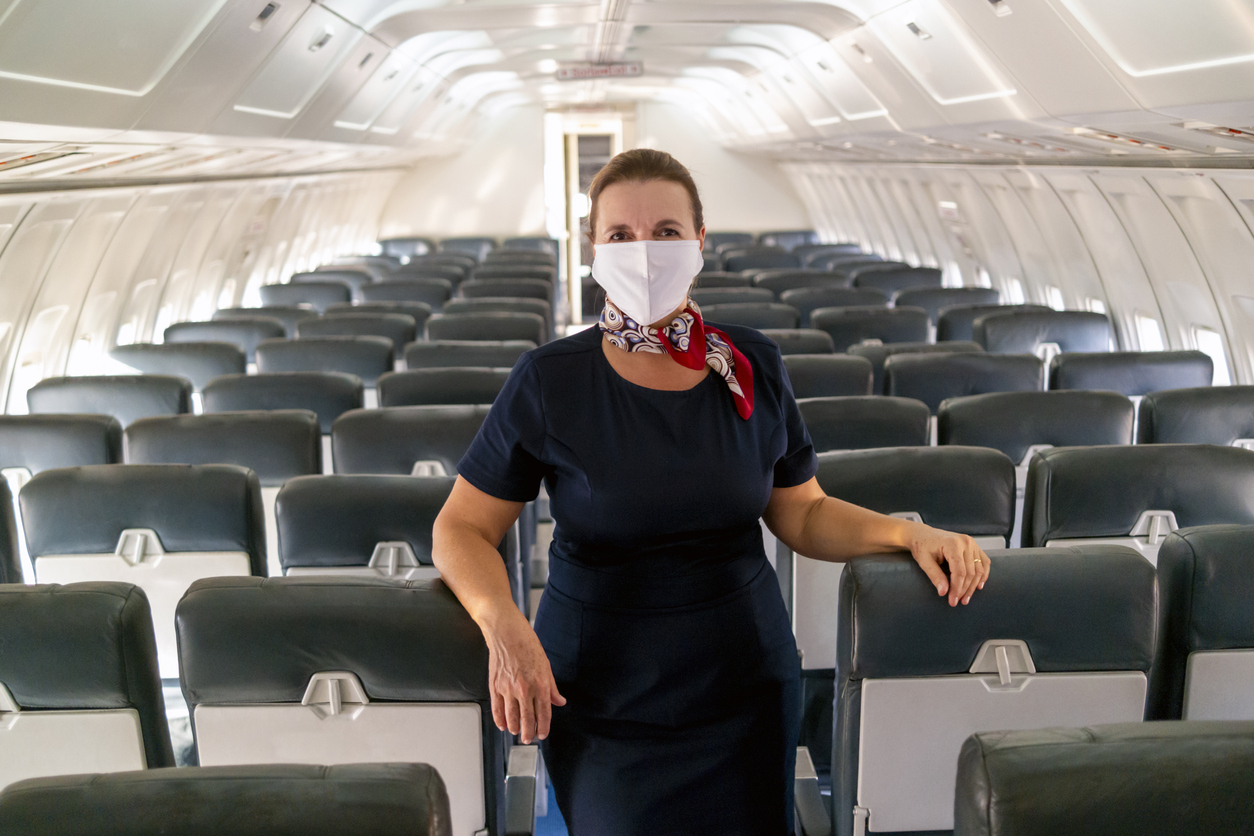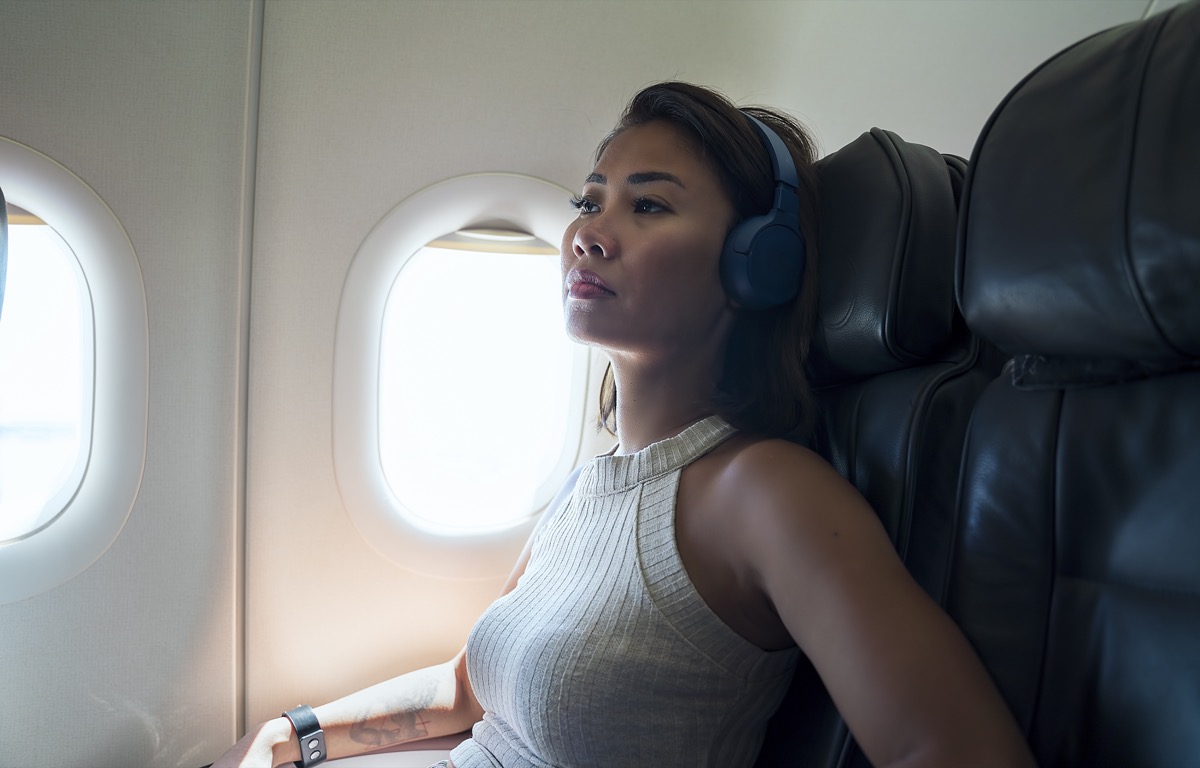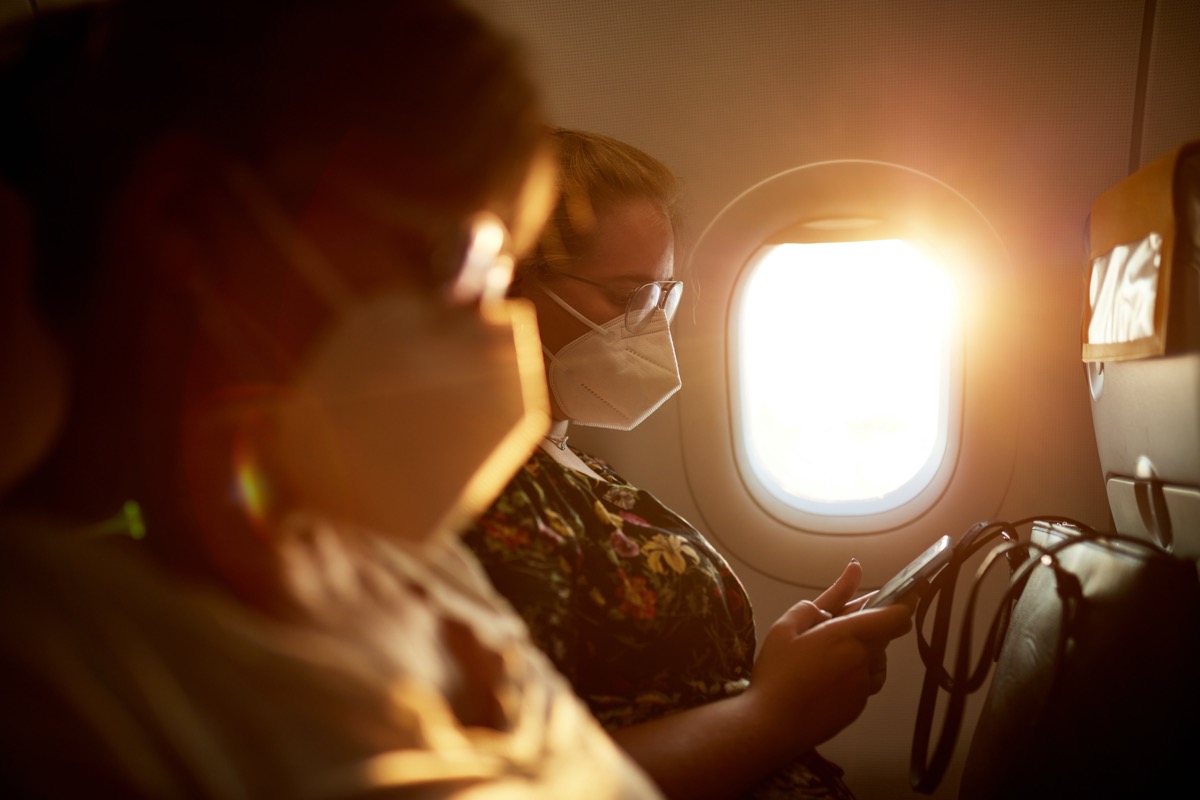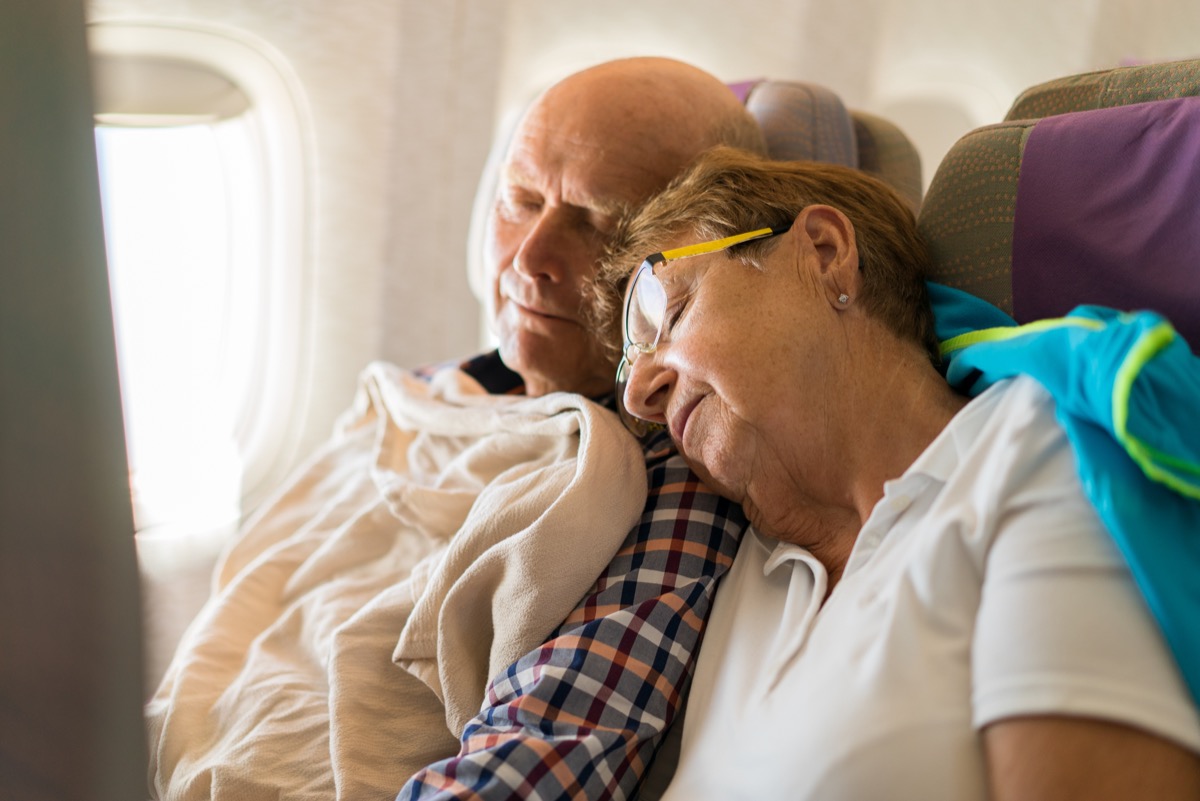Check for These types of Cancer if You are a Frequent Flyer
Soaring through open skies beats sitting in traffic any day, but experts warn that if you do it often enough, you may be at heightened risk for serious health consequences. In particular, a 2018 study published in the journal Environmental Health has found that those who fly often—especially flight attendants—are more likely to develop certain kinds of cancer. Read on to learn which cancer types pose a danger for frequent fliers, and which in-flight factors may be to blame.
RELATED: Drinking This Popular Beverage Can Triple Your Cancer Risk, Studies Say.

In 2018, researchers from the Harvard T.H. Chan School of Public Health published a study on the prevalence of cancer diagnoses among 5,366 flight attendants. To do so, they surveyed participants from the Harvard Flight Attendant Health Study, comparing their self-reported cancer diagnoses to control data from the National Health and Nutrition Examination Survey.
The researchers learned that flight attendants were at higher risk of getting every type of cancer, but especially breast cancer, melanoma skin cancer, and non-melanoma skin cancers including basal cell carcinoma and squamous cell carcinoma. While statistically less stark, endometrial, gastrointestinal, thyroid, and cervical cancers were all found to disproportionately affect flight attendants.
RELATED: If You Notice This on Your Face, Get Checked for Cancer.

Whether you’re flying for business, pleasure, or because it’s your job, extended time spent in the skies could be putting your health at risk. The study suggested that the more often a person flies, the more likely they are to develop certain types of cancer. In particular, they learned that female flight attendants with longer job tenures self-reported higher rates of non-melanoma skin cancer.
The American Cancer Society (ACS) notes that “passengers are also exposed, but because they spend less time in the air than flight attendants, their exposure is lower.”
For more health news sent directly to your inbox, sign up for our daily newsletter.

While the Harvard study didn’t explicitly name the cause for the higher risk level associated with working as a flight attendant, ACS says two key factors are likely to blame: cosmic ionizing radiation, and compromised air quality within the cabin.
The organization explains that cosmic ionizing radiation “is a form of radiation that comes from space and is more intense as you get higher in the air. It is possible that this form of radiation increases cancer risk.”
As for air quality in the cabin, things have improved since 1990, when it became illegal to smoke on an airplane. However, ACS notes that “not a lot is known about cabin air quality and how healthy it is,” and adds that “air in the cabin on some flights may include pesticides and other chemicals.”
The study adds that there are few protections safeguarding flight attendants against such risk factors. “Flight attendants’ exposure to ionizing radiation is still not monitored or regulated in any way, despite the fact that cabin crew are exposed to the largest average annual effective dose relative to all other U.S. radiation workers,” the study states.

ACS experts say there may be several other factors which contribute to heightened cancer risk within this demographic. In particular, flight attendants tend to have their sleep schedules regularly disrupted by time changes and irregular schedules. “There is some evidence linking sleep disruptions to increased cancer risk. Flight attendants may also have different lifestyle behaviors related to diet, physical activity, and health care than the general population,” explains ACS. “These could affect overall health and cancer risk.”
If you’re concerned about how frequent flying may be affecting your health, talk with your doctor about ways to minimize your risk.
RELATED: If You Feel This in Your Throat, Get Checked for Cancer.
" Conservative News Daily does not always share or support the views and opinions expressed here; they are just those of the writer."





